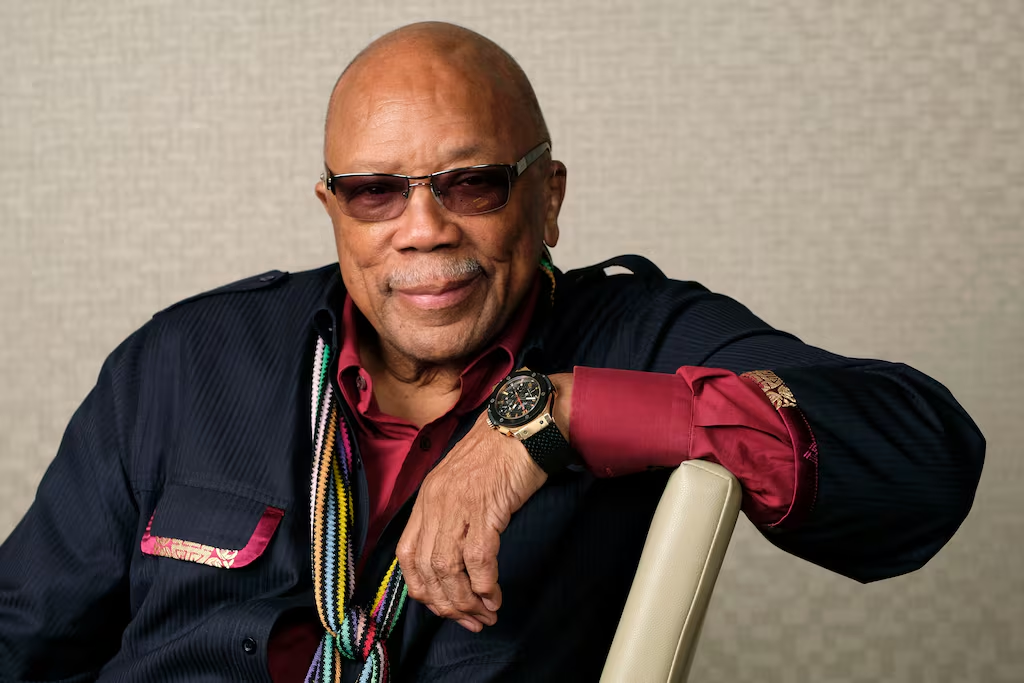Quincy Jones, the Grammy-winning music legend and entertainment icon, has passed away at the age of 91. Renowned for his incredible contributions to music, film, and cultural activism, Jones leaves a legacy that transformed the entertainment industry over a career spanning more than seven decades.
A Prodigy Turned Pioneer in Music
Jones, who began his career as a jazz musician, quickly became known for his versatility and groundbreaking work as a producer and composer. He produced some of the world’s most iconic records, including Michael Jackson’s groundbreaking albums Off the Wall, Thriller, and Bad. These projects not only revolutionised pop music but also became some of the best-selling albums of all time.
Trailblazer in Film and Television
In addition to music, Jones made history in film and television. He scored the iconic 1985 film The Color Purple, for which he was nominated for an Academy Award, breaking barriers for black composers in Hollywood. Jones also produced television shows and launched the careers of numerous artists, solidifying his role as a cross-genre mogul.
An Advocate and Activist for Equality
Jones was also a passionate advocate for social change. He used his platform to address racial inequality and promote humanitarian causes, including working on We Are the World in 1985, which brought together legendary artists to raise money for famine relief in Africa. Throughout his life, he remained dedicated to advancing opportunities for underrepresented voices in the industry.
A Legacy of Awards and Accomplishments
With 28 Grammy Awards and a record 80 Grammy nominations, Jones’s influence on music and entertainment is unparalleled. His lifetime of achievements has been recognised with numerous honours, including the Grammy Legend Award and a place in the Rock & Roll Hall of Fame.
Remembering an Icon
Jones’s death marks the end of an era, but his impact will continue to resonate. Artists, musicians, and fans around the world are celebrating his life and work, remembering him as a true visionary who reshaped the sound and scope of modern music.












